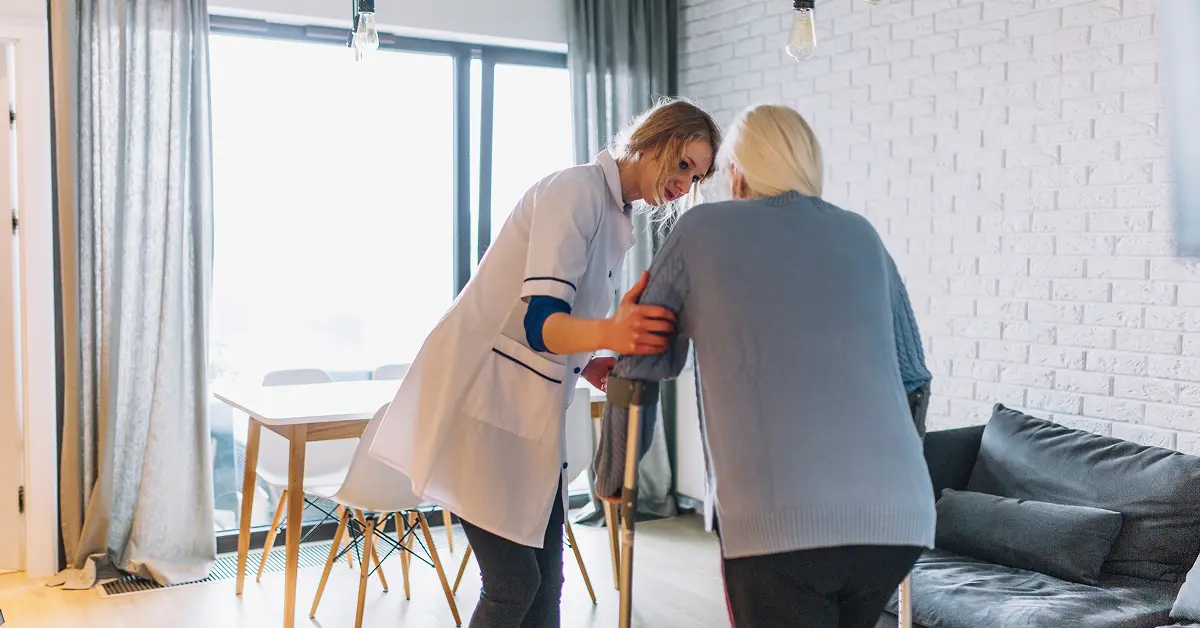As our parents grow older, it becomes increasingly important to monitor their well-being closely. Ageing comes with physical, emotional, and cognitive changes that can gradually diminish a person's ability to care for themselves. While occasional forgetfulness or fatigue might seem normal, there are critical signs that could indicate it's time to consider hiring a Best Caregiver Services at Home for your parent.
In India, where family values and caregiving are traditionally interlinked, it can be difficult to acknowledge when external help is necessary. However, ensuring the safety, dignity, and quality of life of our parents should always take priority. Here are the major signs that suggest your parent needs a home caregiver—now, not later.
Frequent Falls or Physical Injuries
If your parent has recently experienced falls, bruises, or unexplained injuries, it may be a clear indication that they are struggling with balance or mobility. This is particularly concerning if they live alone or spend long hours without supervision.
A caregiver can assist with mobility, ensure a safer environment, and help with tasks that could pose a risk, such as bathing or climbing stairs.
Neglected Personal Hygiene
Noticeable changes in personal cleanliness—like body odour, unkempt hair, dirty clothes, or infrequent bathing—are often a sign that your parent may no longer be able to maintain hygiene independently.
A home caregiver ensures that daily grooming routines are followed, helping your parent maintain both hygiene and self-respect.
Unexplained Weight Loss or Poor Nutrition
If your parent is losing weight rapidly, not eating on time, or relying heavily on packaged or instant food, it could signal trouble.
A caregiver can prepare nutritious meals tailored to your parent’s health needs, encourage regular mealtimes, and help with grocery shopping or dietary monitoring.
Cognitive Decline and Memory Loss
Frequent forgetfulness, repeating stories, getting lost even in familiar surroundings, or struggling to follow conversations are all signs of cognitive decline.
A trained caregiver can provide cognitive support, medication reminders, and activities to stimulate mental health.
Increasing Isolation or Signs of Depression
If your parent is withdrawing from social activities, losing interest in hobbies, or displaying mood swings or sadness, these could be signs of loneliness or depression.
A home caregiver can offer companionship and encourage social interaction, which plays a crucial role in mental well-being.
Difficulty Managing Medications
Older adults often have multiple prescriptions to manage. Missing doses or taking incorrect medication can have dangerous consequences.
A caregiver helps with timely administration of medications, keeping track of dosages, and scheduling doctor visits when necessary.
Unpaid Bills or Household Neglect
Is the house becoming cluttered or dirty? Are there unopened bills or unwashed dishes? These signs may indicate your parent is overwhelmed.
A caregiver can take on light housekeeping, manage errands, and help maintain a clean and organised space.
Wandering or Getting Lost
If your parent has wandered out of the house and couldn’t find their way back, this is a major red flag in dementia-related conditions.
Caregivers can ensure such incidents don’t happen by providing supervision and introducing safety measures like door alarms.
Difficulty with Daily Activities (ADLs)
Struggling with Activities of Daily Living (ADLs) like dressing, bathing, or eating is a strong indicator that help is necessary.
A caregiver assists respectfully, maintaining your parent’s dignity and preventing health issues.
You’re Overwhelmed as a Caregiver
If you’re stressed, juggling responsibilities, or feeling emotionally drained, it may be time to hire professional help.
Hiring a caregiver ensures consistent, high-quality care while also preserving your own well-being.
Benefits of Hiring a Home Caregiver in India
- Tailored one-on-one care
- Support with daily routines
- Emergency response capability
- Peace of mind for family members
- Reduced hospital visits and health complications
Many agencies now offer background-verified, trained caregivers who specialise in geriatric care. You can choose between part-time, full-time, or live-in arrangements based on your parent’s needs.
Final Thoughts
It’s never easy to accept that our parents might now need care themselves. But recognising the signs early and responding with compassion can make a world of difference to their quality of life.
As Indian families evolve and responsibilities diversify, professional home care is no longer a luxury—it’s a necessity. Take that first step today. Your parent deserves to age gracefully, safely, and with love.
Need Help Finding a Home Caregiver?
If you’re looking for reliable home caregiving services in your city, consider reaching out to local elder care agencies or trusted platforms that provide trained, background-checked professionals. Always interview the caregiver and match them to your parent’s comfort level and needs.
Contents
- Frequent Falls or Physical Injuries
- Neglected Personal Hygiene
- Unexplained Weight Loss or Poor Nutrition
- Cognitive Decline and Memory Loss
- Increasing Isolation or Signs of Depression
- Difficulty Managing Medications
- Unpaid Bills or Household Neglect
- Wandering or Getting Lost
- Difficulty with Daily Activities (ADLs)
- You’re Overwhelmed as a Caregiver
- Benefits of Hiring a Home Caregiver in India
- Final Thoughts
Our 24*7 services
Latest Posts
- What Is Respite Care and Why Is It Important
- Affordable home care for senior citizens in India
- Caring for Seniors with Dementia or Alzheimer's at Home
- Senior Caregiving A Guide for Every Family
- How to Write a Caregiver Resume That Gets You Hired
- How Care After Hospital Discharge Speeds Up Recovery at Home
- How to Get Home Health Care for Seniors Through Medicare
- What Does a Senior Citizen Caregiver Really Do at Home
- How to Care for Elderly Parents with Alzheimer’s or Dementia
- How to Get 24-Hour Care for Seniors at Home


